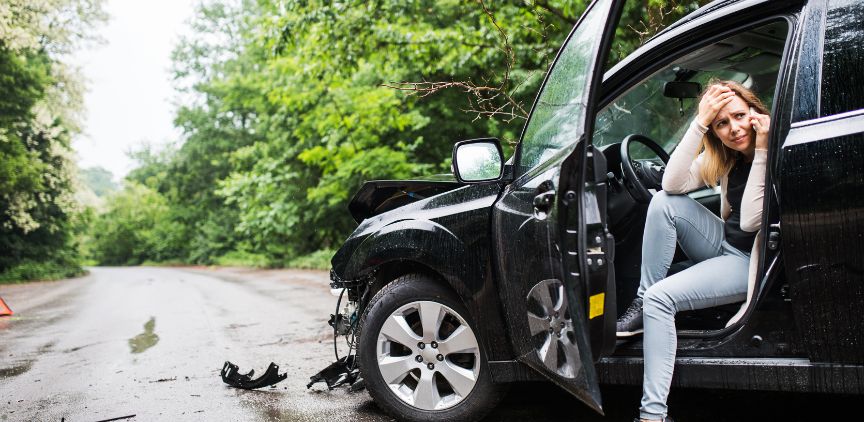What to Do If You're in a Car Accident
A car accident can be a distressing and overwhelming experience. Knowing the proper steps to take after an accident can help you remain calm and handle the situation effectively. Whether it’s a minor fender-bender or a serious collision, here’s what you need to do to protect your safety, rights and future. From calling the police, ensuring your physical safety and contacting a lawyer, keep reading to learn more.
1. Check for Injuries and Ensure Safety
The first and most critical step after a car accident is to check for injuries. Assess yourself, passengers and others involved in the accident. If anyone is injured, call 911 immediately to request medical assistance. Even if injuries appear minor, it’s a good idea to seek medical attention to rule out internal injuries or delayed symptoms.
If the accident is minor and vehicles are drivable, move them to a safe spot, such as the shoulder of the road, to avoid blocking traffic and prevent further accidents. Turn on hazard lights and use warning triangles or flares if available.
2. Call the Police
In most cases, it’s essential to report the accident to the police, even if it seems minor. A police report provides an official record of the incident, which can be valuable for insurance claims and legal proceedings. When the officers arrive, provide accurate information about the accident but avoid admitting fault or speculating on what happened. Stick to the facts.
If the police do not come to the scene, you may need to file an accident report yourself, depending on your state’s requirements.
3. Exchange Information with the Other Driver
Exchange important information with the other driver(s) involved in the accident. Be sure to collect:
- Names and contact details.
- Driver’s license numbers.
- License plate numbers.
- Insurance company names and policy numbers.
While talking to the other driver, avoid arguments or discussing fault. Anything you say could be used against you in the claims or legal process.
Related Search Topics (Ads)
4. Document the Scene
Thorough documentation of the accident scene can be crucial when filing an insurance claim or pursuing legal action. Use your phone to take photos or videos of:
- Damage to all vehicles.
- License plates.
- The location of the accident.
- Traffic signs or signals.
- Skid marks or debris.
Additionally, take photos of your injuries, if any, and write down details of what happened while it’s still fresh in your mind.
5. Talk to Witnesses
If there are any witnesses to the accident, ask for their contact information. Their testimony could help clarify the events of the accident if there is a dispute about what happened.
6. Notify Your Insurance Company
Inform your insurance company about the accident as soon as possible. Provide them with all the details you’ve gathered, including photos, police reports and contact information for the other driver. Most insurance companies require prompt reporting of accidents, so don’t delay.
Be honest but cautious when speaking to your insurance company. Stick to the facts and avoid speculating about who was at fault.
7. Call a Lawyer
If the accident involves significant property damage, injuries or disputes over fault, calling a lawyer should be a priority. An experienced car accident attorney can guide you through the legal process, protect your rights and ensure you receive the compensation you’re entitled to.
Here are some situations where hiring a lawyer is especially important:
- Serious injuries or fatalities.
- Disputes with the other driver or their insurance company.
- Being pressured into accepting a low settlement.
- Potential lawsuits.
A lawyer can handle negotiations with insurance companies, gather evidence to support your claim and represent you in court if necessary. Most car accident attorneys work on a contingency fee basis, meaning you only pay if you win your case.
8. Seek Medical Attention
Even if you feel fine immediately after the accident, symptoms of injuries like whiplash or concussions may appear hours or days later. Schedule a medical evaluation to ensure there are no hidden injuries. Keep records of all medical visits, bills and diagnoses, as these can be crucial for insurance claims and legal cases.
9. Keep a Detailed Record
Maintaining a comprehensive record of everything related to the accident is essential. This includes:
- Medical bills.
- Repair estimates.
- Receipts for out-of-pocket expenses.
- Communication with insurance companies.
- Legal correspondence, if applicable.
Having these records organized and easily accessible will streamline the claims process and help if legal action is necessary.
10. Take Care of Yourself
Recovering from a car accident involves more than just physical healing. The emotional and mental toll of an accident can be significant. Consider seeking support from friends, family or a therapist to cope with any stress, anxiety or trauma resulting from the experience.
Final Thoughts
Dealing with a car accident can be overwhelming, but following these steps will help you protect your rights and make the process more manageable. Calling a lawyer early in the process is particularly important if injuries, disputes or significant damages are involved. By taking the right actions and seeking the appropriate legal and medical help, you can focus on recovery and move forward with confidence.
Installing a dash cam can help in these scenarios, as you'll have recorded evidence of what happened.

